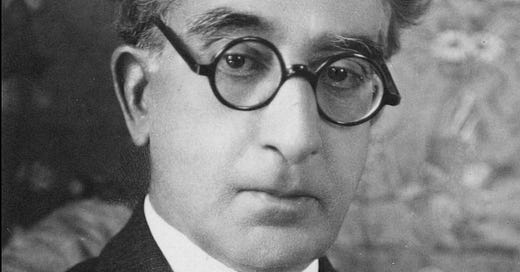At the dawn of the Common Era, the Egyptian city of Alexandria boasted the greatest library of the ancient world. Its decline would begin in 30 CE, when Cleopatra had her fatal encounter with the asp and the Romans brought the 3000-year reign of the Pharaohs to an end. In 48 CE the library went up in flames, leaving classical scholars to perpetually mourn its loss.
Today’s Alexandria, home to six million people and an illustrious past, is a shabby beehive of a city, but since 2002 it has had a new library. The Bibliotheca Alexandrina is a steel and granite edifice designed by Norwegian architects that occupies the site of its famous ancestor. Those ancient books are gone forever, but there’s room for eight million recent publications.
The Bibliotheca is an important cultural centre but for literary tourists it may not be the city’s chief attraction. That honour belongs to the Cavafy Museum, a humble apartment in a narrow side street, once called rue Lepsius, now named after the writer who resided here for the last 28 years of his life.
Constantine P. Cavafy (1863-1933), is recognised as the most important Greek poet of the modern era even though he visited Greece on only four occasions. The first was in 1901, at the age of 38; the last in 1932, when being treated for throat cancer. In his last days he complained “But I still have 25 poems to write…”




